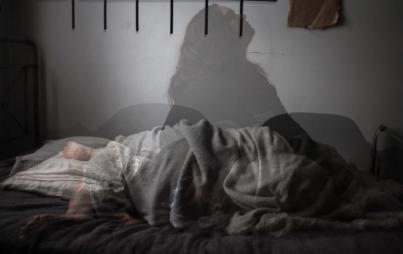
Instead of "Me, too" why don't we say, "I believe you"?
Many of us watched this Sunday as the “Me, too” Facebook status phenom took over the internet. It shouldn’t by now, but it has always been surprising to me how quickly things like this gain momentum.
“Me, too,” is being used to identify every person who has been sexually harassed or assaulted. On my timeline, that included most of my friends. I don’t think I associate exclusively with folks who’ve been assaulted or harassed, so that’s probably a pretty accurate sampling.
The number of women I saw posting “Me, too” (or #MeToo) indicated something we already knew: lots of women, dare I say most, are victims of sexual assault.
In circumstances such as these, when we see people band together to make a point, I feel edified. But that solidarity is so emotional, so exhausting, that we simply can’t endure it every day. These sweeping statements are important, but there are other ways I’d rather see this discussed.
I already know that most of the women I know have been assaulted.
Even if I didn’t know this first hand, I’d know it inherently. I don’t need to find you a scholarly paper to prove it, we know it. It happens everyday to women everywhere. Women are groped, catcalled, molested, raped. Across the globe, in every manner you can imagine, men hurt women.
Instead of seeing my friends relive their sexual trauma every time a new viral Facebook status or tweet sweeps the nation, I’d rather see a new type of recognition.
Instead of “Me, too” what about, “I believe you”?
The abuse is a problem, but the problem we don’t seem to address is even bigger: Survivors can’t speak out because they aren’t considered credible.
I saw this very recently in my own life. A teenage student was mistreated by an instructor. She told another trusted teacher, and the offender lost their job. In the wake of this, many male students began to harass the young woman, accusing her of being a tattletale or a whiner, a baby. She was shunned, humiliated. Pushed from her peer group.
Not for being harassed, but for saying she had been.
This happened in a high school of 1,379 kids. We’d like to believe we’ve taught our kids better, but the prevailing thought is still that women are not to be believed. Women are the instigators. Women should be quiet.
Does it surprise you that women don’t report assault?
It shouldn’t. Women do not report because they are not considered credible sources of information — because they don’t want to endure further pain. They don’t want to commit that kind of social suicide.
How many assault cases have been dismissed because the predator claimed that the woman involved had “buyer’s remorse”? She was a willing sexual participant who “changed her mind.” Do you even know how often this happens? You don’t. You don’t because those are the cases that are swept quietly under the legal rug.
These men go about their lives, maybe they get nine months or a year of probation. They don’t wear a predatorial scarlet letter. They keep their jobs. They date more women. They eventually abuse more women. Those women, too, are dismissed.
Meanwhile, the woman who has summoned the courage to call her abuser what he is lives with the ongoing pain of the assault. She’s left not only to recover from the assault itself but also from the demoralizing awareness that no one believed her, at least not enough to do something meaningful about it.
It’s painful enough to have to revisit your abuse every time a new viral movement takes hold. What if, instead of “Me, too” we said, “I believe you"?
What if, instead of being reminded of the assault that no one gave credibility to, these women heard us say, “I see you. You have been hurt. I will take action because I believe you”?







